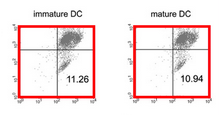
Olivier Voinnet, a researcher at ETH in Zurich and the winner of the 2013 Rössler Prize, is correcting a number of papers following critiques of more than a dozen of his studies on PubPeer.
The work appears in journals including Cell and PNAS. Voinnet’s co-author on several of the papers, David Baulcombe, who is also highly decorated, left this comment on relevant PubPeer entries: Continue reading Award-winning plant researcher correcting several papers critiqued on PubPeer








